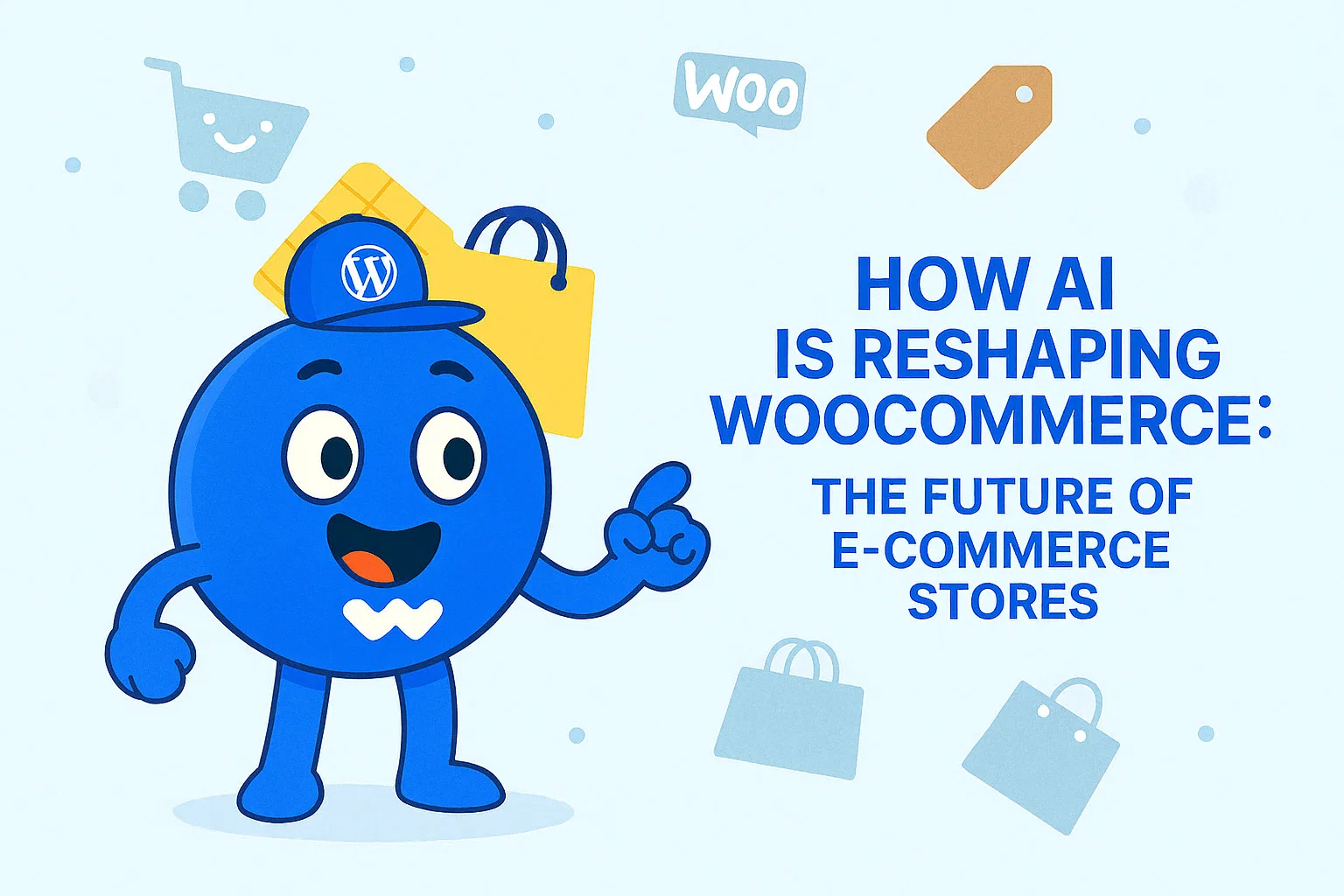How AI is Reshaping WooCommerce: The Future of E-commerce Stores
The e-commerce landscape is undergoing a profound transformation, with Artificial Intelligence (AI) emerging as a foundational technology that reshapes how online businesses operate, engage with customers, and generate revenue. WooCommerce, as a dominant open-source e-commerce platform, is uniquely positioned within this AI revolution. Its inherent flexibility and extensive plugin ecosystem enable the rapid integration of AI capabilities, allowing businesses of all sizes to leverage advanced technologies.
AI’s influence spans critical e-commerce functions, from automating content creation and optimizing inventory to personalizing customer experiences and enhancing operational efficiency. This integration is leading to significant improvements in conversion rates, customer satisfaction, and overall profitability. The future of e-commerce will be defined by hyper-personalized, immersive, and highly automated shopping journeys, driven by advancements in generative AI, multimodal AI, and extended reality (XR) technologies. However, realizing this potential requires proactive strategies to address challenges related to data privacy, algorithmic bias, and the complex interplay between human and artificial intelligence. Businesses must prioritize ethical AI development, robust data governance, and a balanced approach to automation to build lasting customer trust and competitive advantage.
Introduction: The AI-Driven Evolution of E-commerce

The digital retail sector has experienced exponential growth in recent years, propelled by continuous technological advancements and a global shift in consumer preferences towards online shopping. Artificial Intelligence stands as the pivotal force driving this evolution, transforming what were once static online storefronts into dynamic, intelligent, and highly responsive shopping environments. This technological integration is not merely an enhancement but a fundamental redefinition of the online retail experience.
WooCommerce’s Position in the Digital Retail Transformation
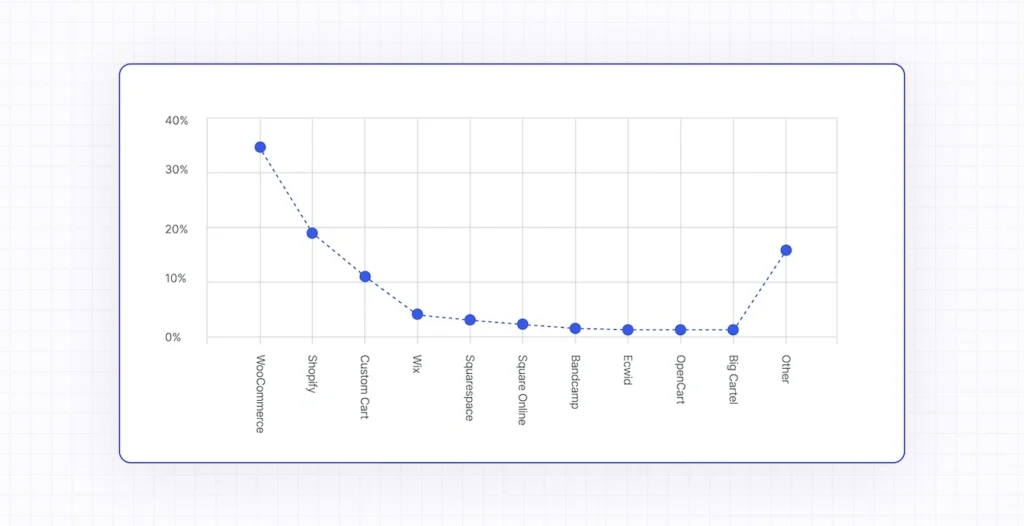
WooCommerce, a robust and intuitive plugin for WordPress, has solidified its position as a cornerstone of the e-commerce ecosystem. It currently powers over 4.6 million active stores worldwide and commands a significant market share, with WordPress underpinning 43% of all internet websites and holding 61.3% of the content management system (CMS) market share. This widespread adoption underscores its reliability and versatility.
A key attribute of WooCommerce is its open-source nature, which provides unparalleled flexibility and extensive customization options. Businesses can tailor their online stores to specific brand identities and operational requirements without incurring the substantial upfront license fees often associated with proprietary enterprise platforms. This inherent adaptability makes WooCommerce an ideal foundation for integrating a diverse array of AI solutions, ranging from readily available third-party plugins to bespoke AI agents developed for unique business needs. The platform’s vibrant and collaborative ecosystem fosters continuous innovation, allowing for a dynamic evolution of its capabilities.
The accessibility of AI through WooCommerce represents a significant shift in the competitive landscape. Traditionally, advanced AI capabilities were largely the preserve of large enterprises with considerable research and development budgets. However, the open-source and often affordable nature of many AI plugins for WooCommerce, some even offering free tiers, effectively levels the playing field. This allows small and medium-sized businesses (SMBs) to implement sophisticated AI-driven strategies for personalization, automation, and analytics that were once exclusive to industry giants. This development democratizes competitive advantages, enabling a broader range of businesses to innovate and thrive in the digital marketplace.
Furthermore, the open-source framework of WooCommerce, particularly when it comes to AI integration, presents a unique security advantage. The platform benefits from a “many eyes” security model, where its underlying code is continuously reviewed by thousands of developers globally. This collaborative scrutiny often leads to rapid identification and patching of vulnerabilities, a process that can be significantly faster than with closed, proprietary systems. The dedicated WordPress AI Team is actively working to ensure that new AI features are built on solid foundations, adhere to common standards, and are accessible and manageable for the entire community. While proprietary platforms may offer tightly controlled AI integrations, the community-driven approach of WooCommerce, combined with dedicated AI development teams, suggests a more transparent and potentially more robust security posture for AI features in the long run. This transparency and collaborative validation can foster greater trust in AI systems, a critical factor for widespread consumer adoption.
Current State of AI Integration in WooCommerce
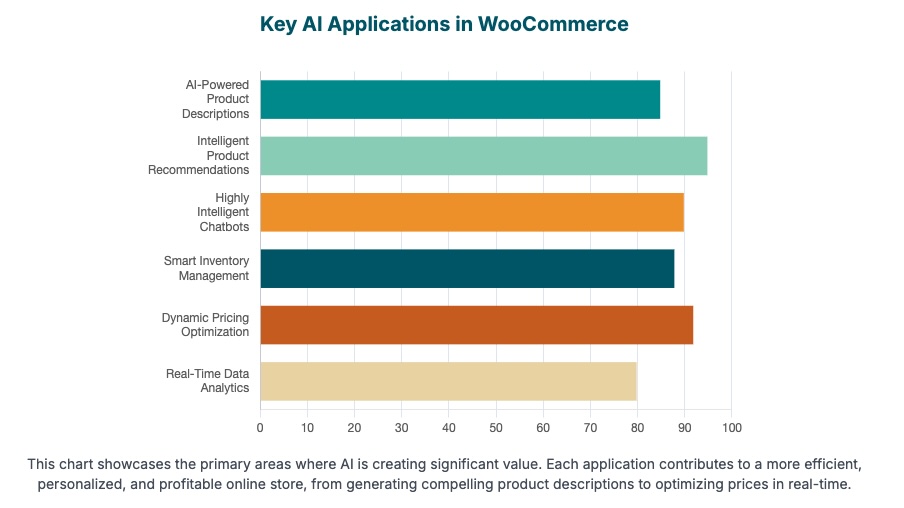
The integration of AI within WooCommerce is actively transforming various facets of online store management, moving beyond simple automation to create more intelligent and efficient operations.
Automating Core E-commerce Functions
AI-powered plugins are revolutionizing content creation and optimization. Tools such as “Auto Product Description Writer” and “AI Product Tools” automate the generation of captivating, SEO-friendly, and unique product descriptions. These plugins can analyze product specifications, integrate data from custom fields, and even generate high-quality images that align with product styles, significantly reducing manual effort and enhancing search engine visibility. Beyond text, generative AI is capable of producing unique images and marketing copy, leading to substantial reductions in content production costs and accelerating the overall content generation process. This automation extends to SEO, where AI automatically generates meta tags and image alt tags, further improving store visibility and driving organic traffic.
Enhancing Customer Engagement
AI is instrumental in personalizing the customer journey and improving interaction quality. Intelligent product recommendation systems analyze user behavior, purchase history, and browsing patterns to suggest items customers are most likely to buy. This capability not only boosts the average order value (AOV) but also significantly enhances customer satisfaction. These recommendation engines can be seamlessly integrated into WooCommerce themes, providing a cohesive shopping experience.
Highly intelligent AI chatbots provide 24/7 customer support, efficiently handling a wide range of inquiries, from basic product information and order tracking to more complex issues like returns and refunds. These chatbots learn from each interaction, continuously refining their responses for greater accuracy and helpfulness. This reduces the workload on human support teams and ensures customers receive immediate assistance. Overall, AI creates unique customer experiences by collecting and analyzing behavioral data and preferences, delivering tailored content, offers, and dynamic store content that resonates with individual shoppers.
Streamlining Operations
AI solutions are significantly easing the complexities of inventory management. Through advanced demand forecasting, stock management, and auto-reordering capabilities, AI helps businesses avoid costly stockouts and overstocks. Dynamic pricing optimization tools leverage AI to analyze real-time market trends, competitor pricing, and customer behavior, adjusting product prices live to maximize profit margins and balance sales volume with revenue.
Furthermore, AI transforms raw data into actionable intelligence, providing a deeper understanding of customer behavior, product performance, and sales trends. This real-time data analytics capability empowers businesses to make more informed and data-backed decisions.
The adoption of AI fundamentally changes the operational model from a reactive, human-intensive approach to a proactive, automated one. This transition not only reduces operational costs and improves efficiency but also allows human capital to be strategically reallocated to more complex, creative, and strategic tasks, fostering continuous innovation within businesses. This shift is particularly evident in areas like content creation, inventory management, and customer support, where AI handles routine tasks, enabling human teams to focus on growth initiatives.
While AI undeniably reduces costs through automation, its strategic value in e-commerce is increasingly recognized as a significant driver of revenue growth. AI-powered product recommendations demonstrably increase conversion rates and average order value. Dynamic pricing strategies are shown to maximize profit margins , and personalized marketing campaigns lead to higher transaction rates. Companies that have implemented AI report average revenue increases of 10-12%, with some seeing profitability enhanced by 59% by 2035. This indicates that businesses viewing AI solely as a cost-cutting measure may miss its profound potential to directly boost sales, increase customer lifetime value, and enhance overall profitability. This understanding necessitates a strategic shift in investment from purely efficiency-focused to growth-oriented AI initiatives.
The various AI applications within e-commerce are not isolated features but rather components of an interconnected ecosystem. For instance, AI-generated product descriptions improve search engine optimization (SEO). Enhanced SEO, in turn, drives more organic traffic. This increased traffic, when combined with intelligent product recommendations, leads to higher conversion rates. Similarly, AI chatbots improve customer satisfaction , which contributes to better customer retention. This interconnectedness means that optimizing one area, such as content generation, can have beneficial ripple effects across other critical business functions like SEO, sales, and customer satisfaction. A holistic AI strategy that integrates these different tools for a synergistic effect will yield far greater benefits than implementing them in isolation.
AI’s Transformative Impact on the E-commerce Customer Journey

AI is profoundly reshaping every stage of the e-commerce customer journey, from initial product discovery to post-purchase support, by making interactions more personal, efficient, and engaging.
Hyper-Personalization and Contextual Experiences
At the core of this transformation is hyper-personalization. AI analyzes vast amounts of customer data, including browsing history, purchase patterns, and demographic information, to deliver highly tailored product recommendations, content, and offers. This level of customization makes the shopping experience feel more seamless and directly relevant to the individual shopper’s needs and preferences. By eliminating irrelevant suggestions, AI significantly boosts customer engagement, increases conversion rates, and improves customer retention. Generative AI takes personalization even further, moving beyond simple recommendations to what is termed “predictive pull,” where products effectively find users, often before they explicitly express intent. This proactive approach anticipates customer needs, creating unique and tailored experiences.
Emerging Shopping Interfaces and Experiences
The evolution of AI is also driving the emergence of new and intuitive shopping interfaces. Visual search capabilities allow customers to upload images to find visually similar items, seamlessly bridging the gap between offline inspiration and online purchasing. Voice commerce, powered by AI virtual assistants, enables hands-free shopping, allowing customers to search for products, add items to their carts, and complete purchases using natural voice commands.
Perhaps one of the most transformative areas is the integration of AI with Augmented Reality (AR) and Virtual Reality (VR). These technologies facilitate virtual try-ons for clothing and accessories, or allow customers to virtually place furniture in their homes. This immersive experience significantly reduces product returns and boosts purchase confidence by allowing customers to visualize items in a real-world context before committing to a purchase. Looking ahead, AI is also expected to enable “zero-click shopping,” where for replenishment items, AI will proactively assemble shopping carts, making the checkout process largely automated and seamless for recurring purchases.
AI is fundamentally reshaping how consumers make purchasing decisions by acting as a trusted advisor and filter. Recent data indicates that nearly 60% of consumers use AI to shop, with almost half trusting AI more than a friend for outfit advice. This reliance on AI helps customers make faster decisions and proactively suggests products. This leads to what can be described as “augmented decision-making,” where consumers offload the mental burden of choice to AI, which in turn compresses the traditional marketing funnel. Brands must adapt by influencing earlier and more intuitively in the customer journey, as the conventional funnel dynamics are rapidly evolving.
The integration of AI is creating a seamless, interconnected customer journey where traditional departmental silos—such as marketing, sales, and customer service—are dissolving. A customer interaction with an AI chatbot, for instance, can simultaneously serve as a support query, a sales opportunity, and a valuable data point for future personalization. AI also provides critical insights that inform marketing strategies. This necessitates a unified, omnichannel strategy across the entire business, driven by shared AI insights, to ensure a consistent and optimized customer experience at every touchpoint.
As AI becomes more pervasive in consumer interactions, the importance of trust and transparency becomes paramount. While consumers express a willingness to trust AI for practical advice, a significant proportion (71%) will disengage from a purchase if their AI-driven experience feels irrelevant. There is also a risk of creating “black box” experiences, where the rationale behind AI’s recommendations is unclear to the customer. Consumers increasingly demand transparency regarding AI’s role and control over their personalization settings and data usage. This highlights that success requires not only sophisticated AI capabilities but also a deep understanding of customer psychology, clear communication about data utilization, and mechanisms for user control. Over-automation without a human touch can prove counterproductive, particularly for purchases that carry an emotional component.
Strategic Business Implications of AI in E-commerce
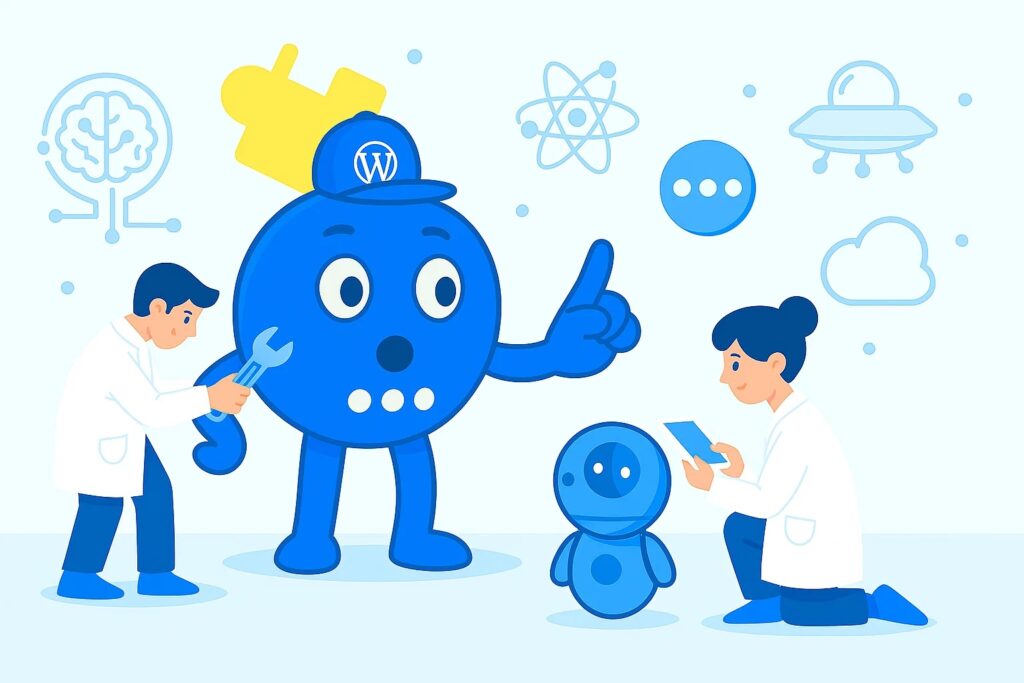
The integration of AI into e-commerce operations carries profound strategic implications, driving significant improvements in revenue generation, operational efficiency, and data-driven decision-making.
Optimizing Revenue Generation
AI algorithms are enabling dynamic pricing strategies, continuously analyzing market trends, competitor pricing, demand fluctuations, and customer behavior to automatically optimize prices in real-time. This maximizes profitability and maintains competitiveness. Targeted marketing and personalization efforts, powered by AI, lead to higher email open rates, improved conversion rates, and increased customer spending through deeply tailored campaigns and offers. The cumulative effect of personalized recommendations and optimized shopping experiences is a significant boost in conversion rates, potentially increasing by up to 150%, and average order value (AOV) by up to 50%.
Improving Operational Efficiency
AI fundamentally enhances supply chain optimization. It improves demand forecasting accuracy, automates inventory replenishment, optimizes warehouse management (including labor allocation and dynamic slotting), and streamlines supplier management. This leads to a reduction in stockouts, lower carrying costs, and the development of more resilient supply chains. Fraud detection is another critical area where AI excels; it uses advanced algorithms to analyze purchasing patterns and identify unusual behaviors, thereby enhancing trust and security for both customers and businesses. Furthermore, generative AI dramatically accelerates content creation, producing product descriptions, marketing copy, and visual assets with unprecedented speed, saving considerable time and resources.
Data-Driven Decision Making and Predictive Analytics
AI transforms raw data into actionable intelligence, providing businesses with a granular understanding of customer behavior, sales trends, and product performance. This capability enables more informed and data-backed decisions. Predictive analytics allows businesses to anticipate future demand, identify potential customer churn, and optimize marketing efforts, shifting from reactive problem-solving to proactive strategic planning.
AI serves as a powerful catalyst for business model innovation. Its capabilities in dynamic pricing, personalized promotions, and hyper-personalization enable micro-segmentation and highly individualized marketing at a 1:1 level. This moves e-commerce beyond traditional transactional models to highly adaptive, customer-centric business models. This opens new opportunities for revenue streams, such as subscription models based on predictive replenishment, the development of highly targeted niche markets, and a significant increase in customer lifetime value through deeply personalized relationships. The focus shifts from merely selling products to curating individualized shopping journeys, which fosters profound brand loyalty.
In an increasingly volatile global market, AI provides businesses with the foresight and agility necessary to navigate complex supply chain dynamics. By improving demand forecasting accuracy, automating inventory replenishment, and optimizing logistics, AI contributes to reduced operational risks, improved cash flow due to optimized inventory levels, and the ability to maintain customer satisfaction even amidst unforeseen disruptions. This fosters a more resilient and responsive e-commerce operation, crucial for sustained competitive advantage.
Challenges and Ethical Considerations in AI Adoption
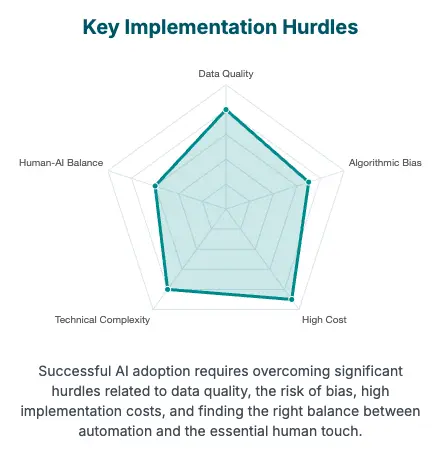
While the benefits of AI in e-commerce are substantial, its implementation is not without significant challenges, particularly concerning data, ethics, and operational complexities.
The Future E-commerce Landscape: Predictions and Opportunities

The e-commerce landscape is poised for further dramatic transformation, driven by ongoing advancements in AI and related technologies. The future of online retail will be characterized by highly immersive, personalized, and automated shopping experiences.
The Role of Open-Source Platforms (WooCommerce) in Future AI Innovation
WooCommerce’s open-source nature provides a significant advantage in this evolving AI landscape. Its flexibility and extensive customization options allow for seamless integration with a wide range of third-party AI plugins and external APIs, including advanced models like OpenAI and Google Gemini AI. This adaptability facilitates rapid adoption and experimentation with cutting-edge AI features, enabling businesses to stay agile in a fast-paced technological environment.
The platform’s community-driven development model, exemplified by the WordPress AI Team, is actively working to establish robust frameworks and standards for core AI integration. This collaborative approach ensures ethical, secure, and scalable AI development within the open-source ecosystem, fostering a richer and more diverse AI landscape compared to more restrictive proprietary platforms. While some advanced features may require paid extensions, the open-source foundation of WooCommerce makes AI adoption more accessible and cost-effective for businesses of varying sizes, allowing them to experiment and scale AI solutions without prohibitive upfront costs.
However, the open-source model also presents challenges. Ensuring data privacy and security, addressing ethical implications, and navigating technical architecture and scalability across diverse environments remain crucial considerations. Balancing core development with the existing plugin ecosystem and fostering widespread community collaboration will be key to overcoming these hurdles.
For e-commerce, particularly within the WooCommerce ecosystem, open-source principles will be critical for accelerating AI innovation and adoption. The collaborative nature of open source allows for faster development, broader adoption, and more tailored solutions than proprietary systems. Businesses leveraging open-source AI can achieve greater agility and adaptability, which is crucial for maintaining competitiveness in a rapidly evolving technological landscape. This approach also has the potential to foster greater trust through inherent transparency.
Strategic Recommendations for Sustained Growth and Competitive Advantage
To thrive in this evolving landscape, businesses must adopt several strategic imperatives:
- Embrace a Data-Driven Culture: Developing robust infrastructure for collecting and analyzing high-quality customer data is foundational for effective AI implementation.
- Prioritize Ethical AI and Transparency: Implementing clear guidelines for AI use, conducting regular bias audits, and being transparent with customers about AI interactions and data usage are essential for building and maintaining trust.
- Invest in Human-AI Collaboration: Focus on AI solutions that augment human capabilities and free up staff for more creative and complex tasks, rather than solely aiming for full automation.
- Start Small, Scale Fast: Begin with focused AI pilot projects, such as automated customer service or personalized marketing, and scale successful implementations across the organization.
- Leverage the WooCommerce Ecosystem: Actively explore and integrate AI plugins and solutions specifically designed for WooCommerce to enhance various aspects of store management and customer experience.
- Stay Agile and Adaptable: Continuously monitor emerging AI trends and evolving consumer expectations, refining AI strategies to remain competitive in a rapidly changing e-commerce landscape.
Conclusion
Artificial Intelligence is fundamentally reshaping the e-commerce landscape, transitioning it from a purely transactional model to a highly personalized, efficient, and engaging customer journey. WooCommerce, with its open-source flexibility and extensive ecosystem, serves as a pivotal enabler of this transformation, making cutting-edge AI capabilities accessible to businesses of all sizes.
While the opportunities for revenue growth, operational efficiency, and enhanced customer experience are immense, successful AI adoption is contingent upon addressing critical challenges. These include navigating data privacy concerns, mitigating algorithmic bias, managing significant implementation costs and technical complexities, and carefully balancing automation with the irreplaceable human element.
The e-commerce of tomorrow will be characterized by hyper-personalization driven by generative AI, highly immersive augmented and virtual reality experiences, and the increasing prevalence of autonomous AI agents. These advancements will collectively contribute to a seamless “augmented decision-making” process for consumers, where products proactively find users and purchasing becomes increasingly intuitive.
For businesses to thrive and secure a competitive advantage in this evolving landscape, a proactive and ethical approach to AI implementation is paramount. This encompasses investing in robust data governance frameworks, fostering a culture of AI literacy within the organization, and continuously adapting strategies to meet the dynamic expectations of the AI-empowered consumer. The synergistic integration of AI across all facets of the e-commerce business will ultimately determine competitive advantage and sustained success in the intelligent, immersive future of online retail.


